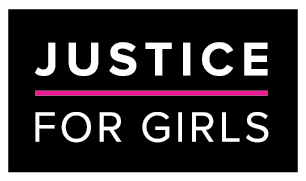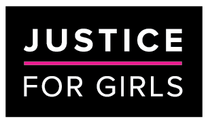|
Indigenous Rights
Indigenous peoples have the right to self-determination. By virtue of that right they freely determine their political status and freely pursue their economic, social and cultural development. - UN Declaration on the Rights of Indigenous Peoples, Article 3 Indigenous peoples have the right to the lands, territories and resources which they have traditionally owned, occupied or otherwise used or acquired. - UN Declaration on the Rights of Indigenous Peoples, Article 26 (1) |
In those States in which ethnic, religious or linguistic minorities or persons of Indigenous origin exist, a child belonging to such a minority or who is Indigenous shall not be denied the right, in community with other members of his or her group, to enjoy his or her own culture, to profess and practise his or her own religion, or to use his or her own language. - UN Convention on the Rights of the Child, Article 30. |
Indigenous girls experience grave social and economic marginalization in Canada. Indigenous girls in Canada face extreme and epidemic levels of violence, as well as poverty and other deeply rooted and pervasive social inequality as a result of colonization. This marginalization places Indigenous girls in situations of extreme vulnerability and has denied them adequate protection of the law and of society as a whole.
Indigenous girls are disproportionately criminalized by the Canadian justice system. Racist stereotypes about the assumed criminality of racialized and Indigenous girls influence the courts’ response to poverty related offences. Over years of advocacy, Justice for Girls has observed that the courts tend to respond to Indigenous girls as though it is inevitable that they will become criminal and drug/alcohol addicted, and that their lives may only be salvaged through the harsh treatment of the criminal law.
Systemic racism is a significant factor in the policing and incarceration of Indigenous young women.
In 2012, after over a decade of responding to police abuses of Indigenous girls and failures to respond to violence, Justice for Girls called on Human Rights Watch to investigate. Justice for Girls partnered with Human Rights Watch in all phases of their investigation, which resulted in the February 2013 report Those Who Take Us Away: Abusive Policing and Failures in Protection of Indigenous Women and Girls in Northern British Columbia, Canada. Since the release of the report, Justice for Girls has continued to advocate for independent, gender-specific investigations of police sexual violence against girls and women.
______________________________________________________________________________
Justice for Girls recommends
Indigenous girls are disproportionately criminalized by the Canadian justice system. Racist stereotypes about the assumed criminality of racialized and Indigenous girls influence the courts’ response to poverty related offences. Over years of advocacy, Justice for Girls has observed that the courts tend to respond to Indigenous girls as though it is inevitable that they will become criminal and drug/alcohol addicted, and that their lives may only be salvaged through the harsh treatment of the criminal law.
Systemic racism is a significant factor in the policing and incarceration of Indigenous young women.
In 2012, after over a decade of responding to police abuses of Indigenous girls and failures to respond to violence, Justice for Girls called on Human Rights Watch to investigate. Justice for Girls partnered with Human Rights Watch in all phases of their investigation, which resulted in the February 2013 report Those Who Take Us Away: Abusive Policing and Failures in Protection of Indigenous Women and Girls in Northern British Columbia, Canada. Since the release of the report, Justice for Girls has continued to advocate for independent, gender-specific investigations of police sexual violence against girls and women.
______________________________________________________________________________
Justice for Girls recommends
- Canada must provide supports, resources, and core funding to Indigenous women’s organizations for the development of advocacy, support, housing and education services for Indigenous teenage girls.
- The Canadian government must specifically uphold the inherent rights of Indigenous girls and make every effort to remedy the consequences of colonization. In so doing, the Canadian government must engage Indigenous grassroots organizations and engage the leadership of Indigenous women and girls.
- Canada must urgently respond to the genocide of Missing and Murdered Indigenous Women and Girls (MMIWG) and, drawing on the leadership of Indigenous girls, develop a Transitional Justice National Action Plan to implement the MMIWG Inquiry's Calls for Justice and end the genocide.
- Canada must immediately de-incarcerate Indigenous teenage girls.

